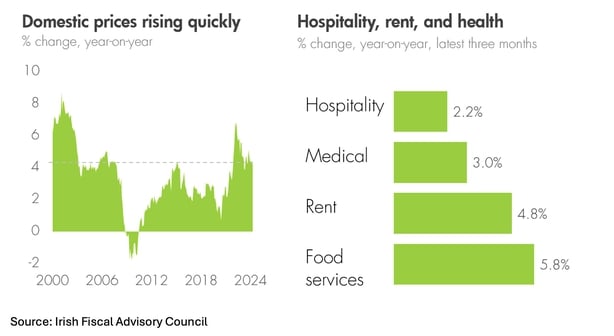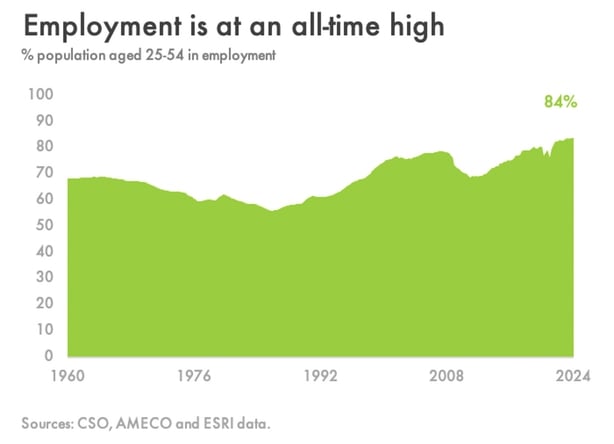Opinion: public knowledge that Ireland is set to receive a tax windfall will increase pressure to loosen the purse strings in Budget 2025
An interesting turn of events this week saw the Government set to receive roughly €14 billion from Apple after a ruling by the European Court of Justice. This consists of €13.1bn in unpaid taxes plus €1.2bn in interest. The final figure due may be up for debate given that Apple have stated some of this payment is due to different jurisdictions.
From RTÉ News, Minister for Finance Jack Chambers discusses the European Court of Justice decision in the Apple tax case
Still, this places the Government in a bit of a hard spot, particularly timing-wise. The Irish Fiscal Advisory Council recently warned the Government against increasing spending in their Pre-Budget Statement, but public knowledge that Ireland is set to receive such a generous windfall will put pressure on Minister for Finance Jack Chambers to loosen the purse strings in the upcoming budget, his first in the job.
The Fiscal Advisory Council recently identified large growing deficits and high prices for domestically driven commodities like rent, food, and medical care as major risks for the Irish economy. Further Government spending may add fuel to the fire and set these risks off with major implications for Irish consumers.

Head of the Irish Fiscal Advisory Council Seamus Coffey cited record high employment levels, as well as high growth in prices, to suggest the Government was in risk of adding to these pressures by breaching its own rule on limiting government spending to 5% per annum and estimates that the Government could add nearly 2% to prices by 2025.

This is the problem the Government faces right now. The public knows they have more than enough money to spend, but economic indicators point towards such spending inducing inflation and further increasing the cost of living crisis. Furthermore, spending now will be spending unavailable in the future if Ireland is to see a decrease in employment levels. It's a classic case of good politics being bad economics.
Early signs on the matter are that both Chambers and Minister for Public Expenditure Paschal Donohoe are not budging on the Government’s position of limiting spending. This suggests that the upcoming budget is likely to be one where the Government tries to adhere to the advice of the Irish Fiscal Advisory Council and not go beyond their own 5% spend rule.
We need your consent to load this rte-player contentWe use rte-player to manage extra content that can set cookies on your device and collect data about your activity. Please review their details and accept them to load the content.Manage Preferences
From RTÉ Radio 1's Morning Ireland, Seamus Coffey from the Irish Fiscal Authority warns the Government's approach to Budget 2025 could add "needless pressure" to the economy
The most likely use of the Apple money will probably be to contribute towards the increasing Government debt, which rose to €206.7 billion by the first quarter of this year. While it’s true that the windfall received from Apple will only make a small dent in this figure, the Government may view this as preferable long-term strategy amid concerns of inducing higher increases to domestic prices in housing, healthcare, and food.
I can’t help but wonder whether the looming general election will play a role in Chambers sticking to this limited spending policy. It may make sense for long-term prices, but Government spending is, and always has been, a useful PR tool when it comes to the electorate.
If the Government rebels against the advice of the Irish Fiscal Advisory Council and breaches its 5% spending rule, then it is likely the case that they have buckled to the pressure of the upcoming election. If not, then they may help slow further growth in domestic prices, but run the risk of losing out on votes. At least they have more than enough for another bike shed...
Follow RTÉ Brainstorm on WhatsApp and Instagram for more stories and updates
The views expressed here are those of the author and do not represent or reflect the views of RTÉ







